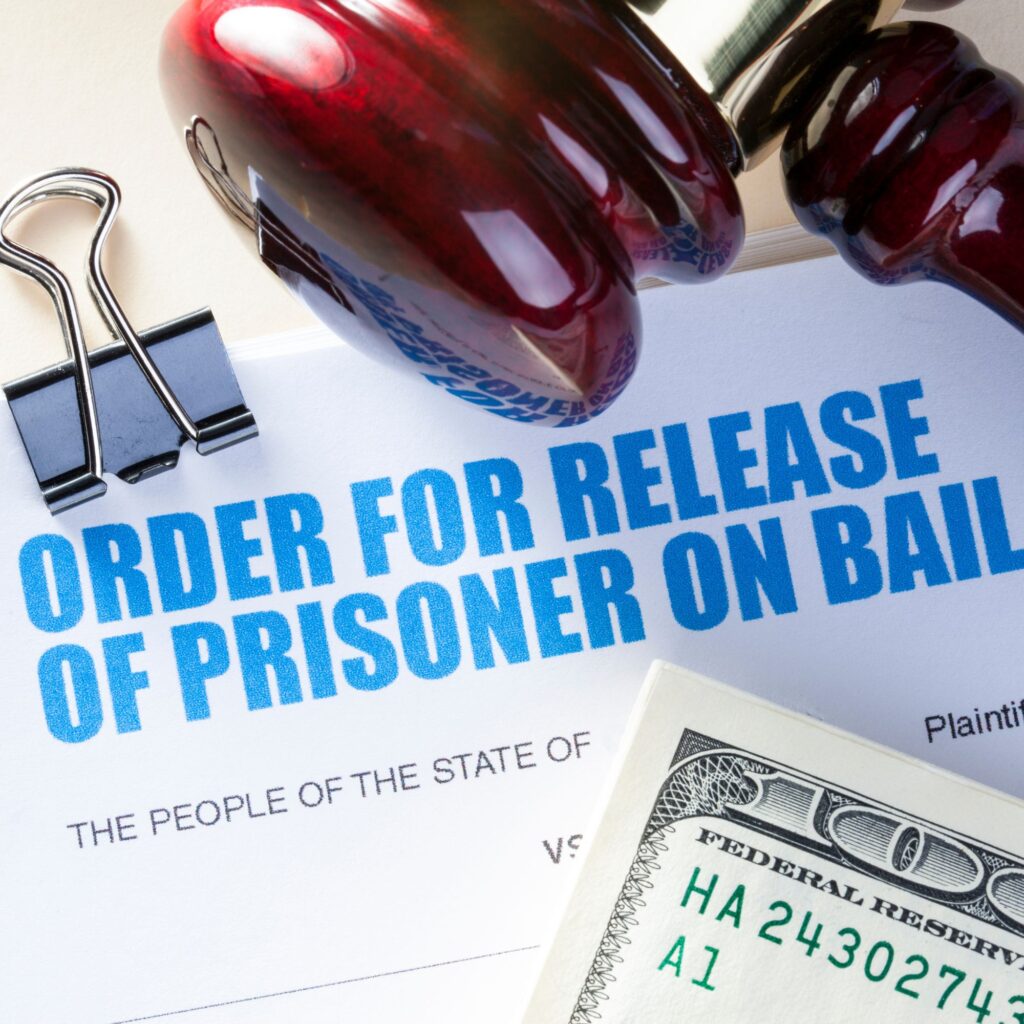Exactly How Bond Bonds Assist You Secure a Swift Release
Bail bonds work as an essential system for people navigating the complexities of the criminal justice system, providing a path to gain back flexibility immediately following an arrest. By engaging a bail bondsman and paying a portion of the total bond amount, accuseds can deal with both lawful obligations and individual obligations without the prompt problem of complete settlement. This process not just aids to maintain one's public picture however likewise helps with a smoother transition during a tough time. The intricacies of this system typically prompt questions-- what are the specific benefits, and exactly how do they truly influence the overall experience?
Comprehending Bail Bonds
Bail bonds function as a critical mechanism in the legal system, giving individuals with a method to safeguard their release from protection while waiting for test. This monetary plan permits defendants to publish bail, which is a set amount established by the court, guaranteeing their appearance at future court dates. When an accused can not manage the full bond quantity, they may look for aid from a bail bond firm, which commonly bills a cost, often around 10% of the total bond quantity.
The bail bond works as an assurance to the court that the offender will follow all legal commitments. If the defendant falls short to appear in court, the bail bond business is responsible for paying the full bond amount. This danger incentivizes the company to guarantee that the defendant appears for their scheduled hearings.
Recognizing the terms of a bail bond is vital for any individual considering this choice. It is essential to acknowledge that bail bonds do not cover lawful fees or other expenses related to a test. People must be well-informed about their legal rights and duties when getting in right into a bail bond contract. This expertise can dramatically impact the end result of their lawful scenario.
The Role of a Bail Bondsman
Just how does a bondsman assist in the launch of accuseds from custody? A bail bondsman, likewise referred to as a bail bonds representative, plays a critical duty in the bail process by providing the funds necessary to protect a defendant's launch from prison - bail bonds licking county. When a defendant can not afford the complete bond amount set by the court, the bondsman action in to cover this expense, generally charging a non-refundable costs, typically a percent of the total bond
When the premium is paid, the bondsman protects the offender's release by signing a surety bond with the court. This bond assures that the defendant will certainly stand for all set up court hearings. If the offender stops working to appear, the bail bondsman is in charge of paying the complete bond amount to the court, which incentivizes the bail bondsman to make sure the offender abides with their court obligations.
In addition, bail bondsmans usually assess the threat related to each instance, assessing the accused's history, connections to the neighborhood, and probability of appearing in court (bail bonds licking county). This threat analysis informs the terms of the bond and may consist of collateral requirements, better making sure the bail bondsman's financial investment is protected throughout the lawful procedure
Benefits of Using Bail Bonds
Utilizing bond bonds gives a number of advantages for accuseds dealing with lawful obstacles. Bond bonds enable accuseds to pay a portion of the complete bond amount, normally around 10%, consequently easing the immediate financial burden.

Moreover, working with a bondsman gives access to professional assistance with the complicated legal landscape. Bondsmen are educated regarding the lawful system and can supply beneficial advice, ensuring accuseds understand their civil liberties and responsibilities. This expert support can be critical in safeguarding a desirable outcome in court.
Finally, making use of a bail bond can aid maintain a defendant's public image and work status, which could be detrimentally affected by prolonged detention. In general, the advantages of bail bonds extend beyond financial factors to consider, promoting security throughout a difficult time.
The Bond Process Explained
Comprehending the bail procedure is essential for any person navigating the intricacies of the lawful system. The bail procedure begins after a person is jailed and brought before a judge. During the initial look, the judge identifies whether bail is applicable and establishes the quantity based on the severity of the charges, the defendant's additional info criminal history, and trip threat.
When bail is established, the defendant has several options for securing their release. They can pay the full bail quantity in money to the court, which is refunded upon the conclusion of the instance, gave all conditions are satisfied. Conversely, numerous individuals choose to make use of a bail bond service. In a co-signer, the offender or this case pays a non-refundable charge, normally 10% of the complete bond amount, to the bondsman, who then covers the full bond.
Upon settlement, the bondsman documents necessary documents, and the defendant is released from wardship. It is crucial to understand the obligations included, including attending all court hearings and adhering to any type of conditions established by the court, as failure to do so can cause a loss of the bail and additional legal effects.
Usual Mistaken Beliefs Concerning Bond

One more prevalent mistaken belief is that bond quantities are generally established and unchangeable. In truth, courts have discernment in determining bail quantities based upon different factors, consisting of the nature of the criminal activity, the accused's criminal history, and trip threat. Furthermore, numerous think that only affluent people can afford bond, forgeting the presence of bail bonds, which offer an even more accessible financial solution.
Some likewise assume that bail is a punishment, not understanding that it functions as a device to guarantee offenders stand for their court days while preserving their liberty throughout the lawful process. Lastly, numerous people are uninformed that bail is not a right; it can this page be rejected under particular conditions, particularly in significant criminal activities or repeat offenses. bail bonds licking county. Clearness on these misconceptions is vital for informed choices pertaining to bail and the general legal process
Final Thought

When a defendant can not pay for the full bail quantity, they might look for help from a bail bond company, which typically bills a cost, usually around 10% of the total bail quantity.
If the defendant falls short to appear in court, the bail bond business is liable for paying the full bail amount. A bail bondsman, additionally understood as a bond bonds representative, plays an essential role in the bond procedure by supplying the monetary sources required to protect an accused's release from jail. Bond bonds allow accuseds to pay a portion of the complete bail quantity, normally around 10%, therefore easing the prompt monetary worry.
In this case, a co-signer or the offender pays a non-refundable fee, typically 10% of more the total bond amount, to the bail bondsman, who then covers the full bond.